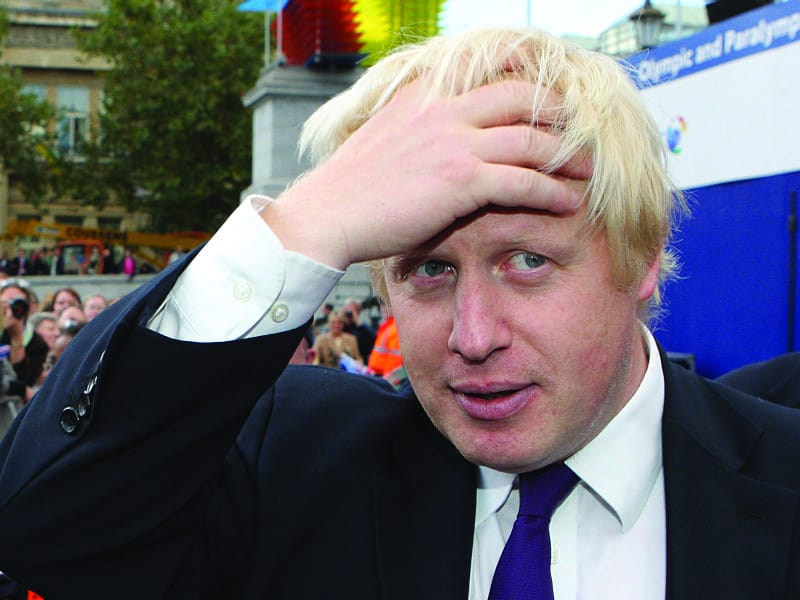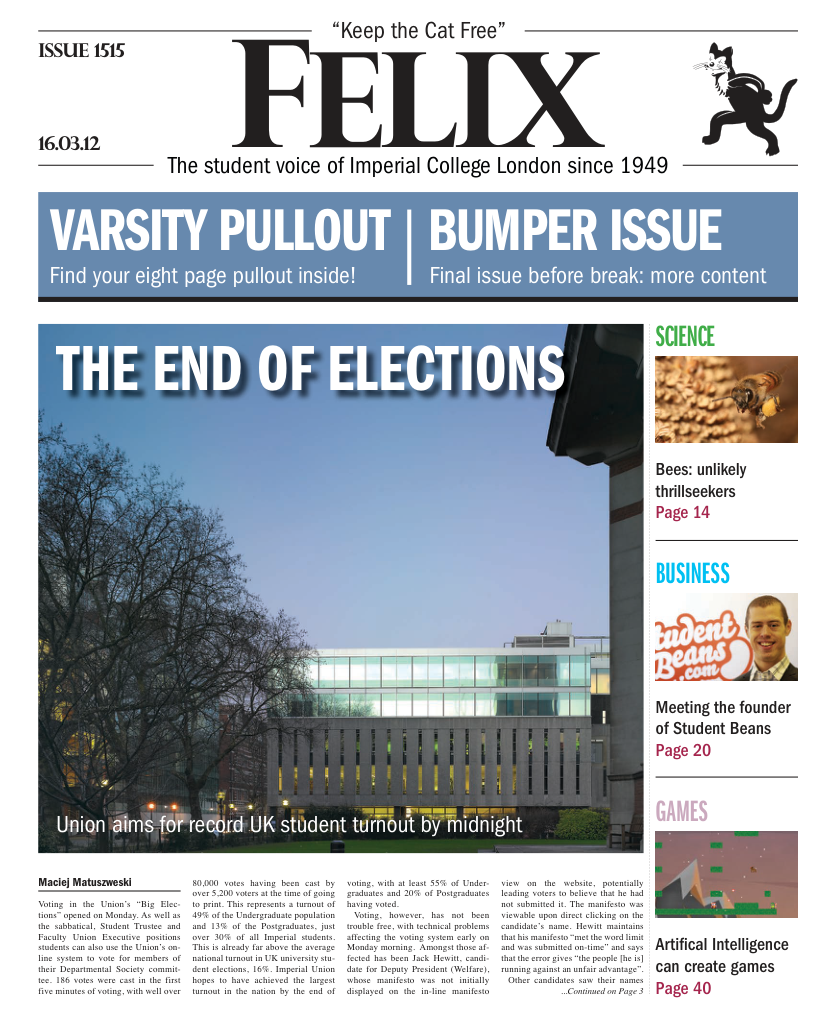Back Boris? Not bloody likely!
It is time for London to elect a mayor

This May, Londoners will again be called upon to elect a mayor, and if the polls are anything to go by the race between incumbent Boris Johnson and returning rival Ken Livingstone is too close to call. The thing is, I have real difficulty understanding how that can be so. Cynics remark that British politics is increasingly being reduced to a personality contest and, worryingly, it seems to me that the 2012 mayoral election has a candidate basing their entire campaign on a persona.
Because, simply put, if we look over these four years of Johnson we see that even his claimed successes, such as the council tax freeze and the “New Bus For London”, don’t hold up to close scrutiny.
Seeing as it is now plastered around the city as part of Boris’s “9 point plan for a Greater London”, the freeze of council tax bills in the “Mayor’s Precept” portion of London is the perfect example. The Back Boris campaign proudly claim that this freeze saved families £445, and while it’s true that the precept did rise under Livingstone, this figure is entirely imaginary. Rather being derived from promised budgets, this figure comes from projected increases based on the average precept rise under Livingstone. Not only that, this ignores the fact that Boris’s freeze was funded substantially by a central government grant, for which Ken would also have been eligible. Of course, Johnson has also gone one step further, pledging to cut the precept if he’s re-elected. The slight issue is that his cuts only amount to a generous average saving of £7 a year per household.
...the 2012 mayoral election has a candidate basing their entire campaign on a persona.
Of course, as students, council tax changes aren’t entirely our concern. Transport however, the area where the mayor has the most direct control, most certainly is, and the record here is similarly patchy. Under Boris ticket prices have soared, seeing the cost of a single bus journey rise by 50% to £1.35, and a weekly zone 1-2 travelcard by 20% to £29.20. But while Boris is happy to try and claim network investment begun under Livingstone for himself, it seems a fair portion of this money is propping up pet projects with spiralling costs.
While fares make a dent in our pockets, TfL has spent £11m developing just 8 of the “New Buses For London”, which is a stark contrast to the £300k it costs to purchase an existing hybrid model. The Barclay’s Cycle Hire scheme, originally meant to be delivered at no cost to the tax payer, now has 80% of its current £140m bill footed by TfL and the London Boroughs. In a strikingly similar story, the planned Thames Cable Car, also promised to be delivered through private investment, now has nearly half its £60m bill being met by TfL, with no clear indication of how its predicted £3m annual running costs will be met.
Of course, it’s also possible that fare increases have come about as a way to replenish revenue lost from scrapping the Congestion Charge Western Extension. And while Boris is making some effort to recoup the economic effects of its abolition, the same cannot be said for the environmental impacts.
Up to 4,000 deaths a year in the capital can be attributed to air pollution, and London is looking at swingeing fines of £300m from both the EU and the International Olympic Committee. But Boris has seemingly refused to treat the issue seriously, at one point trying to claim high levels of particulates in Central London were due to pollution being carried over form the continent. Any money he has committed to the issue has been spent predominately on Dust Suppressants, which a TfL study states “will not be a useful [...] technique for preventing exceedances of the PM10 EU limit value”, and pot plants, rather than actually addressing the causes of pollution.
All of these points above fit in to a wider image of an entirely disconnected City Hall. A place where Tory London Assembly members believe “relatively few Londoners use […] transport in any way”. Where the number of staff paid over £100k has doubled, the mayor receives a larger salary than the Prime Minister and marketing advisers are paid through private companies to evade tax. It’s a City Hall accused of “barefaced lying” about Police cuts, and that boasts of cutting waste while maxing out public borrowing.
Of course, who you vote for on May 3rd remains entirely your choice. However, I implore you to reflect carefully on the following question when making your decision: What precedent does it set for our Democracy if we allow a man to drift towards a second term simply because he’s ‘funny’?






